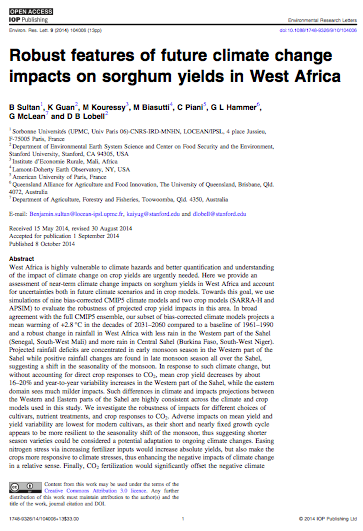Robust Features of Future Climate Change Impacts on Sorghum Yields in West Africa

This paper presents the impacts of climate change for different choices of cultivars, nutrient treatments, and crop responses to CO2. Adverse impacts on mean yield and yield variability are lowest for modern cultivars, as their short and nearly fixed growth cycle appears to be more resilient to the seasonality shift of the monsoon, thus suggesting shorter season varieties could be considered a potential adaptation to ongoing climate changes. Easing nitrogen stress via increasing fertilizer inputs would increase absolute yields, but also make the crops more responsive to climate stresses, thus enhancing the negative impacts of climate change in a relative sense. Finally, CO2 fertilization would significantly offset the negative climate impacts on sorghum yields by about 10%, with drier regions experiencing the largest benefits, though the net impacts of climate change remain negative even after accounting for CO2.